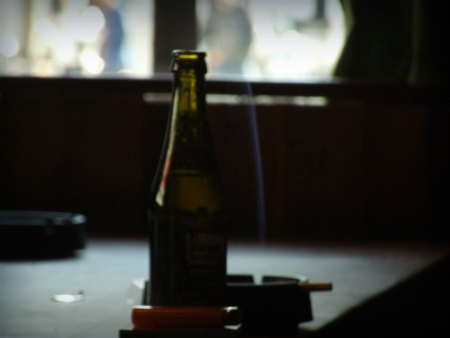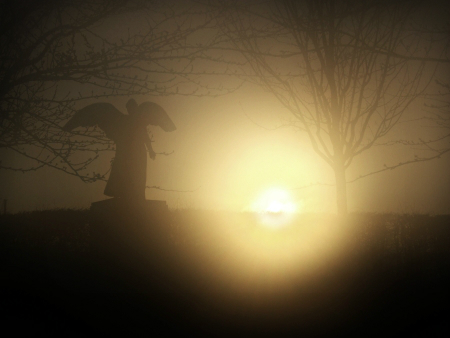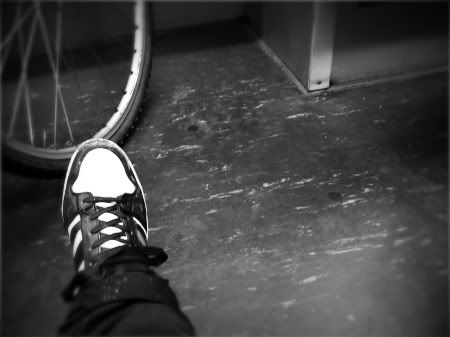The carvings in the wood. Steps up, turn right, unzip, let it rip.
There is some necessity for being unconscious of the process.
Of the origin. Of the consequence and significance.
There is some necessity to intonate without ideal,
to fling actions all of the sudden
as dice without any odds of winning.
Fix hair. Zip, down the steps. Smoke fury of flurry. Beer; what’s the score?
The second, while being a vehicle of careless novelty, is actually
heavy, almost pregnant with the expression of expired millennia.
Seamless actions operate unconscious of the thrust of heavy history.
Running out of beer. Was it 25? Come one Jones, put it in the box!
Poetry is an exercise in distillation. An appropriation of the
universal, namely, to compress the universe into the right word.
It is mutiny against language, a futile revolution against excess.
For fuck’s sake, that’s it. What a poor effort. Let’s grab a bite.
There is nonetheless an element of arbitrariness in all postures.
The only sin is definition, that is to say, narrowing the flux
to one single image, fluid as this representation may be,
that will necessarily congeal the real nature of impermanence.
The clouds are suspended as the self. Return my symbol; I’m under the influence of the absolute.
This is not the language of the everyman. But the poetic is an
elevation of ordinary life, a dissection of the vital rhythms
that run through the flesh of form and the bone of force.




You must be logged in to post a comment.